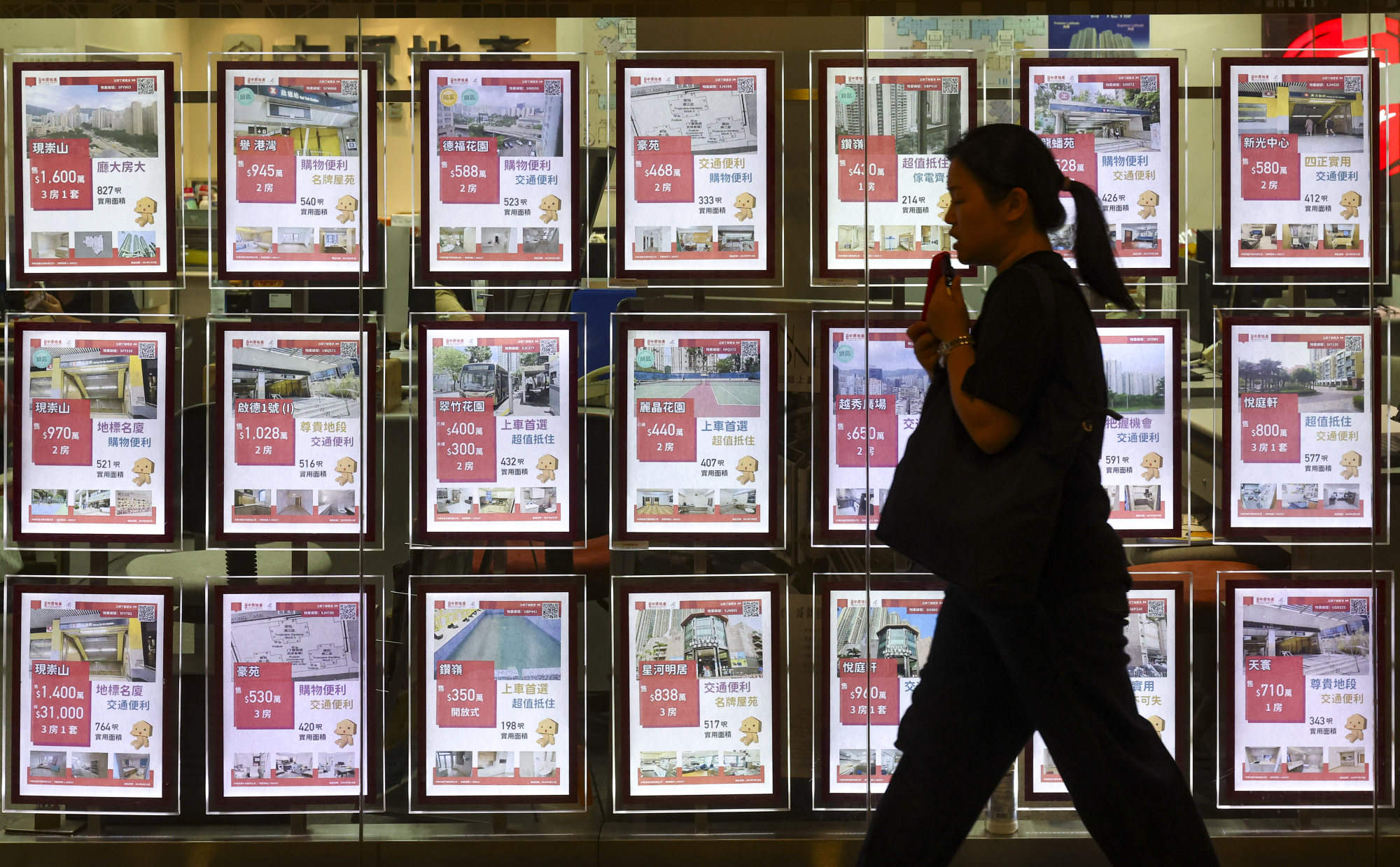
Different times: Hong Kong finance chief Paul Chan hints decade-old property curbs have had their day as home prices slide
- Paul Chan says the property market situation is different from that when the government introduced the management measures in 2010
- Chan returned home after touring Europe at the head of a 130-strong delegation in effort to tout Hong Kong as top business destination
Meeting the press after a 10-day trade trip to Europe, Chan was asked whether authorities would relax cooling measures for the property market amid falling house prices.
“We see that the current property market situation is different from that when we introduced the management measures,” he said, referring to curbs launched by the government from 2010.
“After all, different management measures have their goals and purposes in different scenarios. We will adopt a pragmatic attitude and continue our reviews.”
In July, the Hong Kong Monetary Authority (HKMA) and Hong Kong Mortgage Corporation relaxed loan rules covering some homes to make them more accessible for first-time buyers and easier for owners to trade.
It was the first easing of curbs since the HKMA launched measures in 2009 to reduce potential risks to financial stability arising from an overheated property market.

Despite the move in July, the continuous increase in interest rates prompted banks to raise mortgage rates, which left home prices drifting lower and hurt demand.
HSBC last week forecast home prices would drop by 5 per cent in the first six months of next year before stabilising in the second half.
Chan said that when the government first rolled out management measures from 2010 to increase housing supply, it had to curb demand for property speculation and investments.
The management measures were meant to increase housing supply on a short- to long-term basis.
“We have noticed that property prices dropped by around 15 per cent last year and bounced back by around 2 per cent by the end of this July,” he said.
Lived-in home prices fell 1.4 per cent month on month in August, marking four straight months of declines, according to an index compiled by the Rating and Valuation Department.
Louis Loong Hon-biu, secretary general of the Real Estate Developers Association of Hong Kong, welcomed Chan’s comments that market conditions were different from previously and urged the government to ditch all curbs.
“We appreciate the government’s prudent approach to rein in the property market, but my worries are excessive caution could backfire and trigger another crisis,” he said.
Sammy Po Siu-ming, CEO of Midland Realty’s residential division for Hong Kong and Macau, said Chan’s message signalled that the government was ready to give the green light to easing cooling measures.
“If the government does not withdraw the measures, we estimate property prices will be under pressure in the fourth quarter and prices may drop by 3 per cent,” Po said.
“If certain measures are eased, such as the double stamp duty and buyer’s stamp duty, which restrict the purchasing power of non-residents or alleviate constraints on locals to purchase additional properties, I believe the transaction volume will increase immediately without causing a significant surge in prices, which are constrained by higher interest rates.”
Property consultancy firm JLL on Wednesday said the year-to-date gain in home prices would be offset by the end of September by the recent declines, and that it forecast cases of residential loans in negative equity would exceed 10,000 by the end of the month.
JLL Hong Kong chairman Joseph Tsang told the Post that falling property prices were a threat to the banking sector and the local economy, and the government should ditch all curbs.
“Even if all measures are lifted, it doesn’t mean property prices will stop going down, the market will only result in a soft landing,” he said.
“Anyway, I doubt the government will be aggressive enough to abandon all the measures.”
Tsang said the government should consider adjusting the buyer’s stamp duty for non-locals. Mainland Chinese residents are required to pay a 30 per cent tax on home purchases in Hong Kong, double what locals pay on a second property.
He said the rapid rise in interest rates for mortgages in the past few months was unexpected.
Tsang also said the HKMA should lower the threshold for bank pressure tests in mortgage lending.

Chan returned home on Wednesday after touring Europe at the head of a 130-strong trade delegation, the largest to depart the city since the Covid-19 pandemic struck in 2020.
His 10-day trip involved stopovers in France, Britain and Germany as part of a wider drive to promote Hong Kong as a top business destination following a period of political tensions.
Chan announced last Saturday while visiting London that leading global drugs firm AstraZeneca planned to set up a research and development centre in Hong Kong.
At his first port of call in Paris, Chan met local government officials and business leaders from the life and health technology sectors, as well as the cultural and creative industries.
Chan on Wednesday said the trip had achieved its objectives, adding that it was more effective to promote Hong Kong to overseas businesses in person amid “misleading reporting” by Western media.
“We had the chance to introduce Hong Kong face to face and provide them with objective situations and data when answering their questions,” he said.
“They have also expressed an interest in using Hong Kong as a springboard to expand their operations in the Greater Bay Area and other Asian markets under the weakened global economy.”
Chan said a French company specialising in energy and waste water treatment had also expressed an interest in expanding its business in the city.



